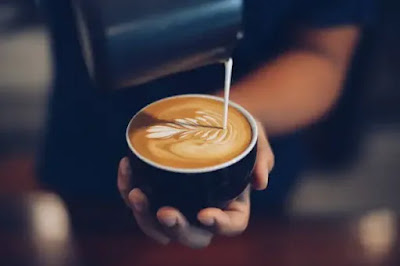Studies have revealed various benefits of drinking espresso, such as reducing the risk of malignant growth, type 2 diabetes and coronary disease. Individuals also drink it to boost energy and refresh the temperament.
However, various experts have found a link between heavy espresso intake and diseases such as heart, stroke and dementia. Then, at that moment, how much espresso should one drink?
Evidence suggests that ordinary acceptance isn't terrible for well-being, but it shouldn't be consumed for health benefits, according to an NBC News report that cited an individual from American Culture for Sustenance, Tricia Psota.
"I would never suggest that people who don't consume juice drinks should under any circumstances start integrating them into their day," Psota said.
Main concern: A huge body of evidence suggests that jazz espresso use does not increase the risk of cardiovascular disease and cancer. In fact, consuming 3 to 5 standard cups of espresso per day has been reliably associated with a decreased hazard of several constant infections.
How much espresso is terrible?
According to the Food and Drug Administration, that should be 400 milligrams a day, or about four or five 8-ounce cups.
It is further reported that individuals do not experience the effects of caffeine such as erratic heartbeats or regurgitation unless they drink approximately 12 cups per day.
Be that as it may, 400 milligrams can occasionally come with unpleasant side effects, including jitteriness and difficulty dozing off, Psota said.
She also pointed out that bodies have different levels of resistance because the body cannot handle more than one or two cups a day. "So I'm definitely going to stay under this FDA proposal," she said.
She suggested 200 milligrams for pregnant or lactating individuals on the grounds that caffeine can pass to newborns through breast milk.
Research has revealed that caffeine during pregnancy can induce a lower birth weight in infants, and another 2021 study revealed that those who consumed moderately during pregnancy had a lower risk of gestational diabetes.
Espresso can similarly gamble people who are diabetic or have cardiovascular disease if it contains sugar or cream, said Nikki Cota, a nutritionist at the Mayo Center in Arizona.
When to stop drinking espresso?
Institute of Nutrition and Dietetics spokesperson Jessica Sylvester said: Some individuals may experience negative side effects from espresso as they age, as the body's ability to tolerate specific synthetic compounds and food sources develops over time.
"Within those milligrams or a cup of espresso, in the event that you begin to feel excessively exhausted and the caffeine doesn't help, you need to stop," Sylvester said, adding that "provided your heart begins to beat unquestionably fast, you need to stop." It's different for each individual.'
Dr. David Buchholz, a pediatrician at Columbia College Irving Clinical Center, said that no amount of caffeine is smart for young people, however brands have gradually introduced caffeinated juice drinks to children.
Buchholz said he wouldn't recommend more than 100 milligrams a day, or about one 8-ounce cup of espresso, for youngsters.










0 Comments